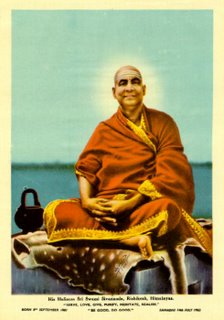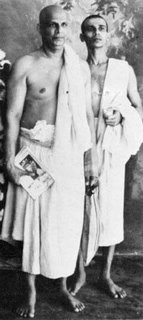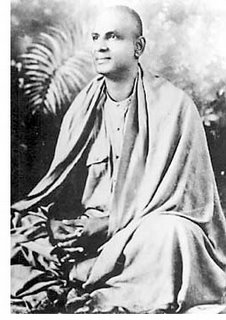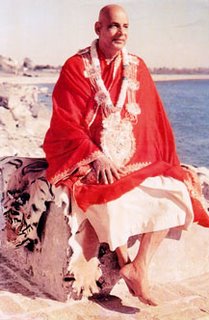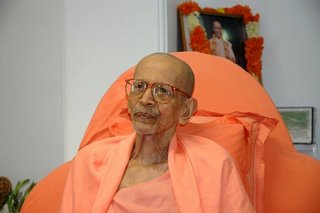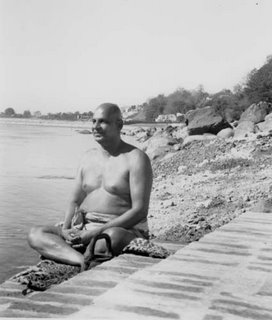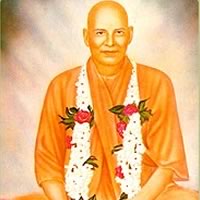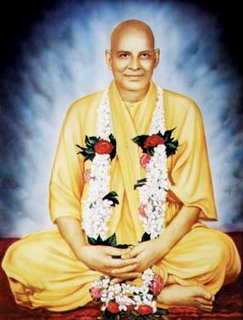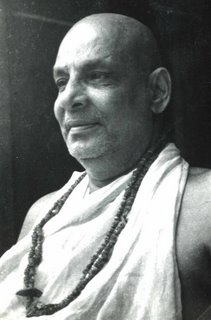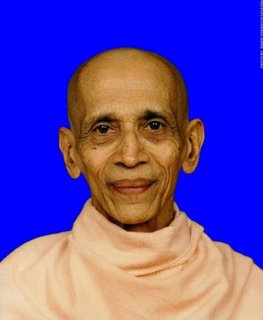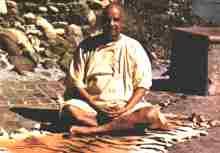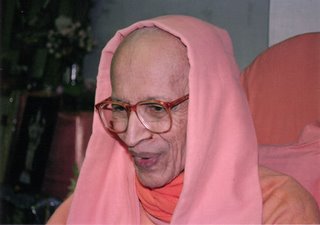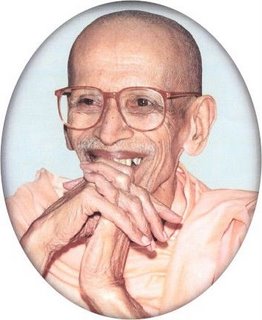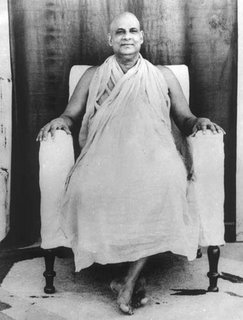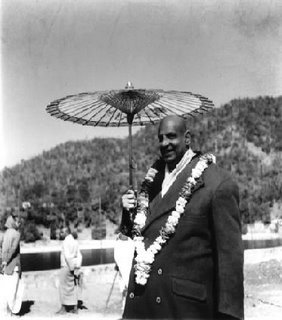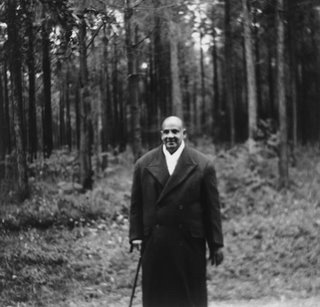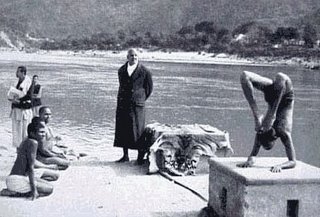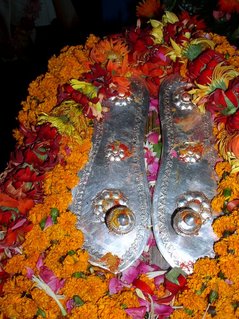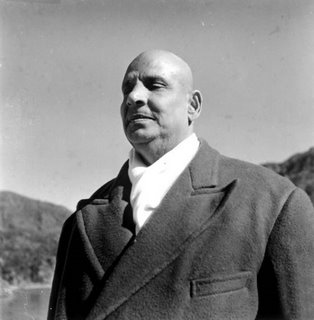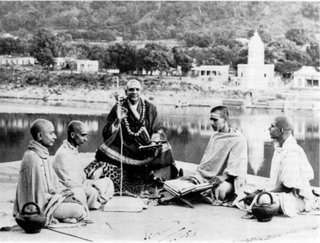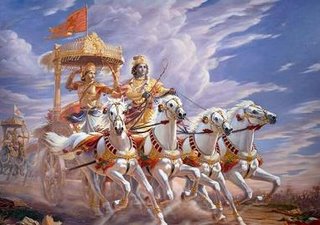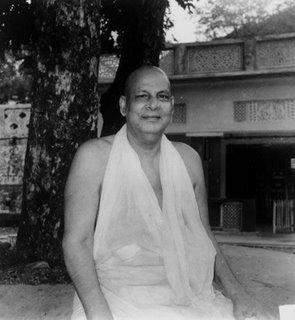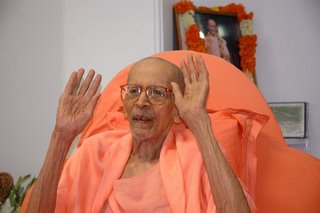
The Divine Life Society was founded by Swami Sivananda In January 1936. Its cultural and spiritual message has been spread far and wide by the selfless efforts of Swami Chidananda, a more than worthy disciple of Swami Sivananda.
Swami Chidananda or young Sridhara was born in Mangalore in South Karnataka. His parents were cultured, educated, pious, well-known and well-respected.
His mother Sarojini Devi was a curious blend of Oriental tradition and Occidental living. She was a good piano player, could sing English hymns and was excellent at tennis.
His father Srinivasa Pao was a prosperous Zamindar (land-owner) and had inherited several villages in the Coimbatore district of South India and sprawling houses in the seaside city of Madras.
What Is more important Is that both young Sridhara’s mother and father were religiously inclined, and both had a lasting impact on the future Swami Chidananda.
Young Sridhara was born on 24th September, 1916 at 10.35 a.m. The astrologer who prepared the horoscope of the child recorded that the child was an enlightened soul. Another famous astrologer confirmed it and declared that he had been a great saint In his previous life and that this was his last birth.
Young Sridhara's thread ceremony was performed at holy Tirupati. As he was returning he beseeched his elders to buy him a beautiful wooden idol of Sri Rama to which he felt tremendously drawn.
A miraculous thing would happen at the time young Sridhara would worship his beloved idol of Sri Rama.
The idol seemed to shine with an extraordinary effulgent halo and a celestial smile used to wreathe the divine countenance.
Sridhara was only a young ten-year old when death snatched away his beloved mother. While he lamented her loss, he realised all worldly life is unreal and that saints only show the right path from attachment and misery. Later, the Gospel of Sri Ramakrishna had a lasting, permanent effect on him. He visualised the form of the Divine Mother in every woman.
He often visited and engaged himself in selfless service in the Sri Ramakrishna math at Mylapore in Madras. He took care of lepers, diseased creatures and stray dogs. He endeavored to behold the same atman in all.
Even though he was brought up in the midst of plenty, he calmly took to a life of austerities. Now he was thirsting for a Guru who would lead him to a world of pure spirituality. He longed to set out in quest of the ideal life at a Master’s feet.
His maternal grandmother however made him promise that he would not renounce family ties as long as she lived.
Young Sridhara had consideration for his relatives and did not possess the selfish kind of. spirituality which makes people callous to other’s needs and expectations.
Even though he served he never permitted himself to become attached. He was in the world but not of the world. Bapuji Mahatma Gandhiji’s life taught him the secret of “anaasakti" in the world.
When he finally decided to renounce home, he explained to his younger sisters and aunt that God would take care of them like no brother or nephew could, but he asked them to make the decision. The sisters and aunt were powerless before such an earnest appeal and so allowed him to leave home.
On 6th March, 1943 young Sridhara stepped out of the house for the good of the world. He worked at a construction site to put himself into a test and erase his ego just as his master Swami Sivananda had done before he renounced the worldly ties.
On the 19th of May. 1943 (Buddha Purnima), he reached Rishikesh. That evening under a full moon, he prostrated at the feet of his Master. He had arrived
Home at last. That full moon witnessed the Birth of Swami Chidananda.
I myself have had the good fortune of receiving Swami Chidananda’s blessings upon various occasions.
What I learnt from Swamiji is the importance of action in lieu of words. Once as Swamiji traveled with his disciples, he was to stay at a place which left a lot to be desired. While his disciples complained, he entered the room.
He emerged from it after a while and when the disciples re-entered the room they found it quite spic and span; everything was neat and tidy. This is Swamiji's nature. What he is able to do, he will do it himself.
Swamiji by his action had taught his disciples a very Important lesson. Do not waste time complaining. Act!!”
I find in Swami Chidananda a divine combination of gentleness, strength and humility.
His gestures express care and love: even when he folds a letter, he seems to fold it just enough. It is like he does not want to hurt it, just crease it.
To educate the untouchable, to love the lepers, to banish illiteracy are some of Swamiji’s wishes. Despite his busy schedule, he finds time for everyone. He says 'Nothing is my own, not even my time, It all belongs to God' — and since he sees God in everyone, his time belongs to everyone, even at the cost of his physical needs.
I once asked him to bless me that I should live by what I believed. To be true to myself.
He told me that the easiest way to do that Is that I should remember that I am only an instrument through which God does His work.
I was reminded of Sri Krishna’s flute. It Is hollow (egoless), and that is how He can play such enchanting music through it.
On January 1988, I took my manuscript of Symbolisms in the Ramayana to Lonavala where the Divine Life Society was holding a spiritual sadhana camp.
Swami Chidananda was sitting under the larger than life picture of Swami Sivananda.
I remembered the long-ago Swami Sivananda’s words to me, to serve Sri Rama even though my Ishta (personal deity) was Sri Krishna.
Swami Chidananda called me and blessed the manuscript and said, continue the Bhakti of Sri Krishna and spread Ram’s word through the Ramayana.
I felt Swami Sivananda blessing me through the words of Swami Chidananda and I felt fulfilled.
A disciple once had a vision of Swami Sivananda and Swami Chidananda merging into one.
A disciple later said: “you worship Lord Krishna and write on Sri Rama — It is like you have been given the Maha Mantra Hare Rama, Hare Rama, Rama Rama Hare Hare, Hare Krishna Hare Krishna, Krishna Krishna Hare Hare.” I felt blessed.
In Swami Sivananda’s own words:
Chidananda is Jeevan Mukta (a liberated soul) a great saint, and ideal yogi, a Para Bhakta (devotee) and a sage.” Swami Chidananda is all this and much more. ...
He was born to fulfill a great mission.
He is the torch-bearer of my mission.
